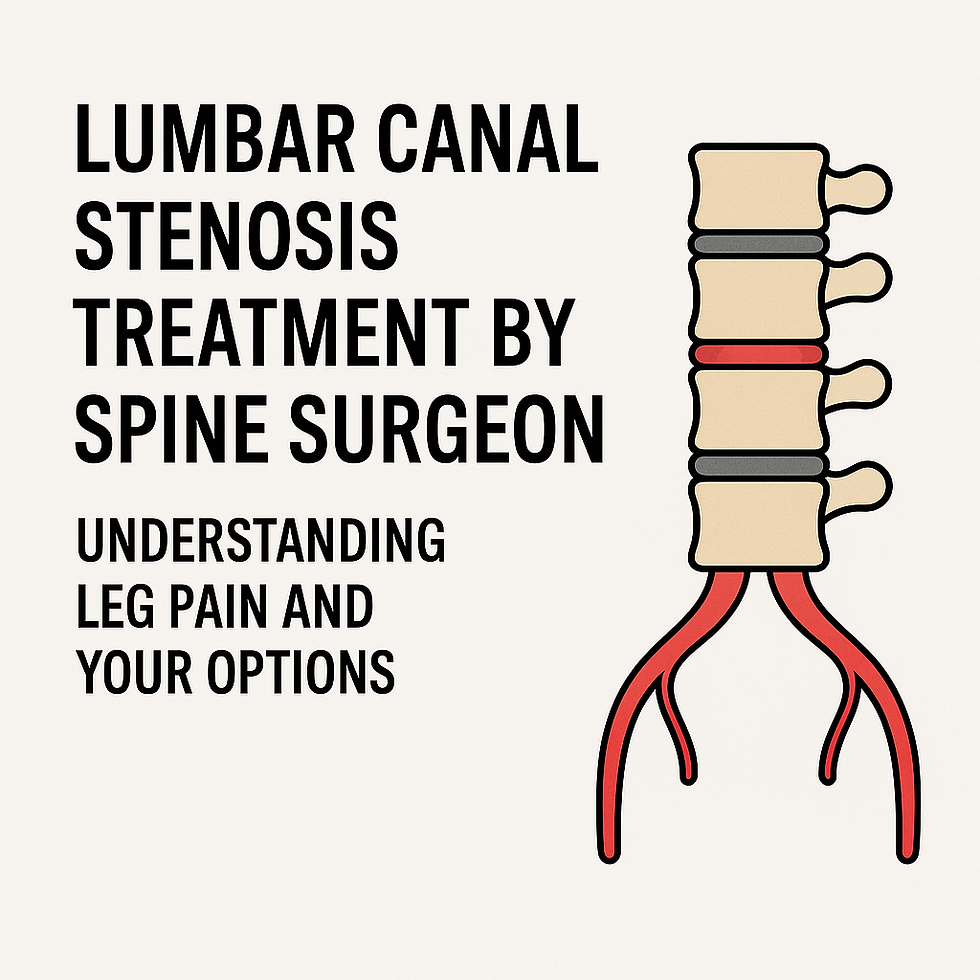Understanding Spinal Disc Prolapse and Its Impact on Arm and Leg Pain
- Specialists on Hutt

- Jul 15, 2025
- 2 min read

When you hear someone talk about a “slipped disc” or “dis
c prolapse”, it can sound quite scary. But what does it mean, and why does it cause pain in your arms or legs? In this article, Dr David Tan, our neurosurgeon in Adelaide and experienced spine surgeon - explains what you need to know in simple terms.
What Is a Spinal Disc Prolapse?
Your spine is made up of bones called vertebrae, with soft discs in between. These discs act like little cushions, absorbing shock and helping your back move smoothly. Sometimes, one of these discs can bulge or “prolapse” out of place. This is often referred to as a “herniated” or “slipped” disc.
How Does It Cause Arm or Leg Pain?
When a disc prolapses, it can press on nearby nerves that travel down your arms or legs. This is why you might feel pain, tingling, numbness or even weakness—not just in your back, but down your arm or leg.
If the prolapsed disc is in your neck (cervical spine): It can cause pain or tingling down your arm and into your hand.
If the disc is in your lower back (lumbar spine): It can cause pain shooting down your leg—this is often called sciatica.
Common Symptoms
Sharp, shooting pain in the arm, shoulder, buttock or leg
Pins and needles or numbness
Muscle weakness in the arm or leg
Pain that worsens with movement, coughing or sneezing
What Causes a Disc to Prolapse?
Most of the time, a disc prolapse occurs due to normal wear and tear that happens as we age. Sometimes, lifting something heavy the wrong way or a sudden injury can also cause it.
Do I Need Surgery?
The good news is that most people get better without surgery. Simple treatments like rest, gentle exercise, pain relief, and physiotherapy can help most cases.
Surgery is usually only considered if:
Your pain isn’t getting better with time and treatment
You have a weakness that is getting worse
You lose control of your bladder or bowels (which is rare, but an emergency)
Should I See a Specialist?
If you are experiencing ongoing pain, weakness, or numbness in your arm or leg, it’s important to talk to your GP. Your GP can help determine if consulting a specialist, such as a spine surgeon, is appropriate for your situation. They can arrange the proper tests and refer you if specialist assessment is needed.
You should seek medical advice if:
Your pain is severe or not improving
You’re losing strength in your arm or leg
You have trouble controlling your bladder or bowels
Getting Help
Don’t let arm or leg pain stop you from living your life. Early assessment and the right treatment can make a real difference. If you’re worried about your symptoms, talk to your GP about whether a referral to a spine surgeon like Dr David Tan would be helpful.



